Our soil came to remind you
Collaborative project with Flaminia Celata
installation, video, sound and photography
2023
Made possible during the “Free transit_permanent cycle of artist-in-residence and art interventions”, curated by Mafalda Santos, hosted by the Cerveira Art Biennial Foundation in Vila Nova de Cerveira (PRT)
Scroll down for info.
exhibitions:
05 - 09/2023: Fundação Bienal de Arte de Cerveira (PRT)
08/2024: Livre Trânsito, Maus Hábitos, Porto (PRT)

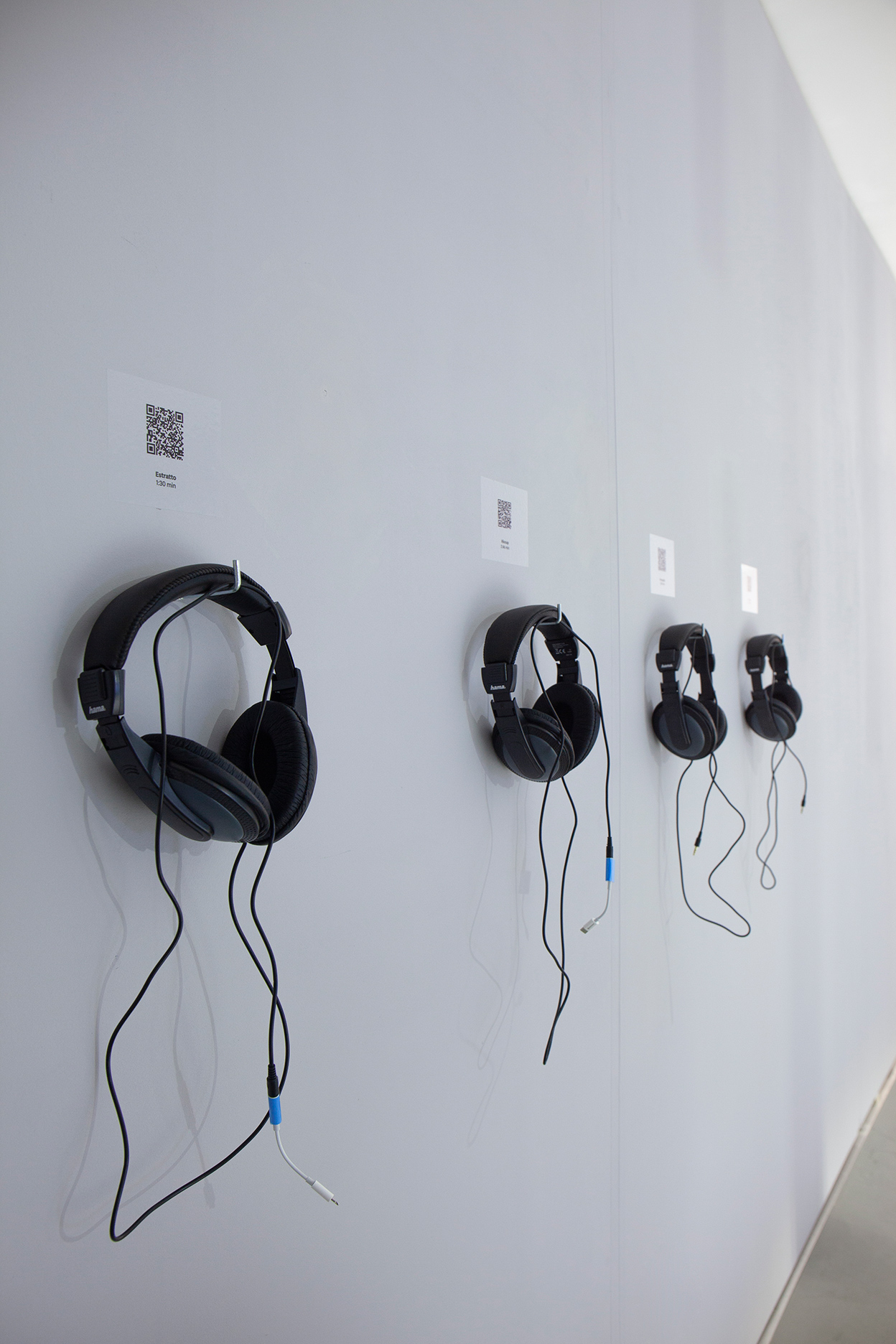
left: Tubes, installation, 6 tubes (dimensions variable).
Tubes used for lithium prospections. The depth of drilling holes can be 200 m.
right: Whoosh, Hiccup, Gorgoglio, Estratto, 4 audio water compositions via CR Code.
Lithium mining comes with heavy use of water, and as a result, water pollution.
Hiccup, water composition, 2:46 min
Gorgoglio, water composition, 3:40 min
Whoosh, water composition, 3:40 min
Estratto, water composition, 1:30 min
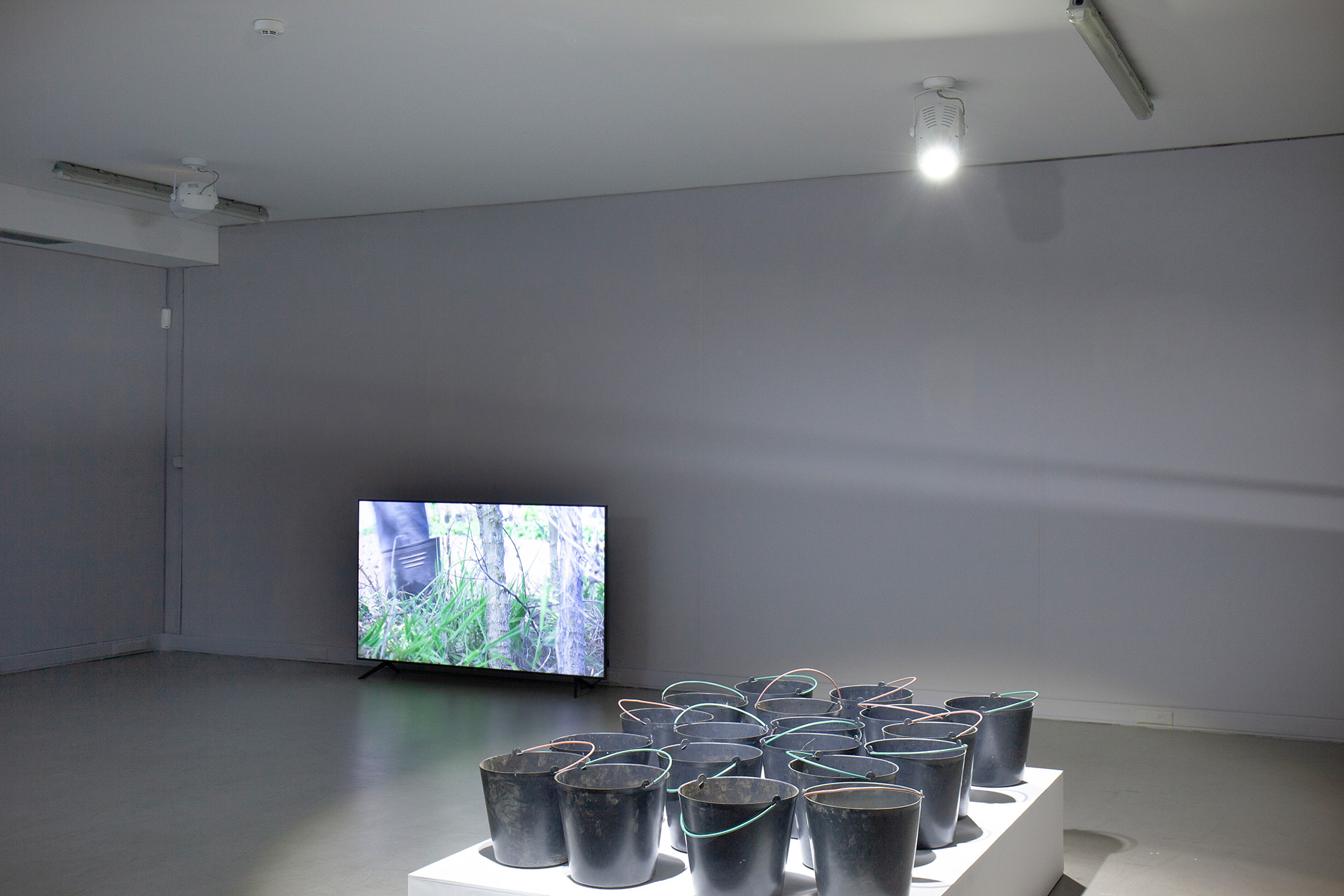

installation views: In my mind, in my heart, video, handwritten note
Our soil came to remind you, installation (dimension variable), buckets, soil
The installation takes its inspiration from one of the protests against the planned open-pit mine:
the protestors placed bags of sand and soil at the investor’s offices.

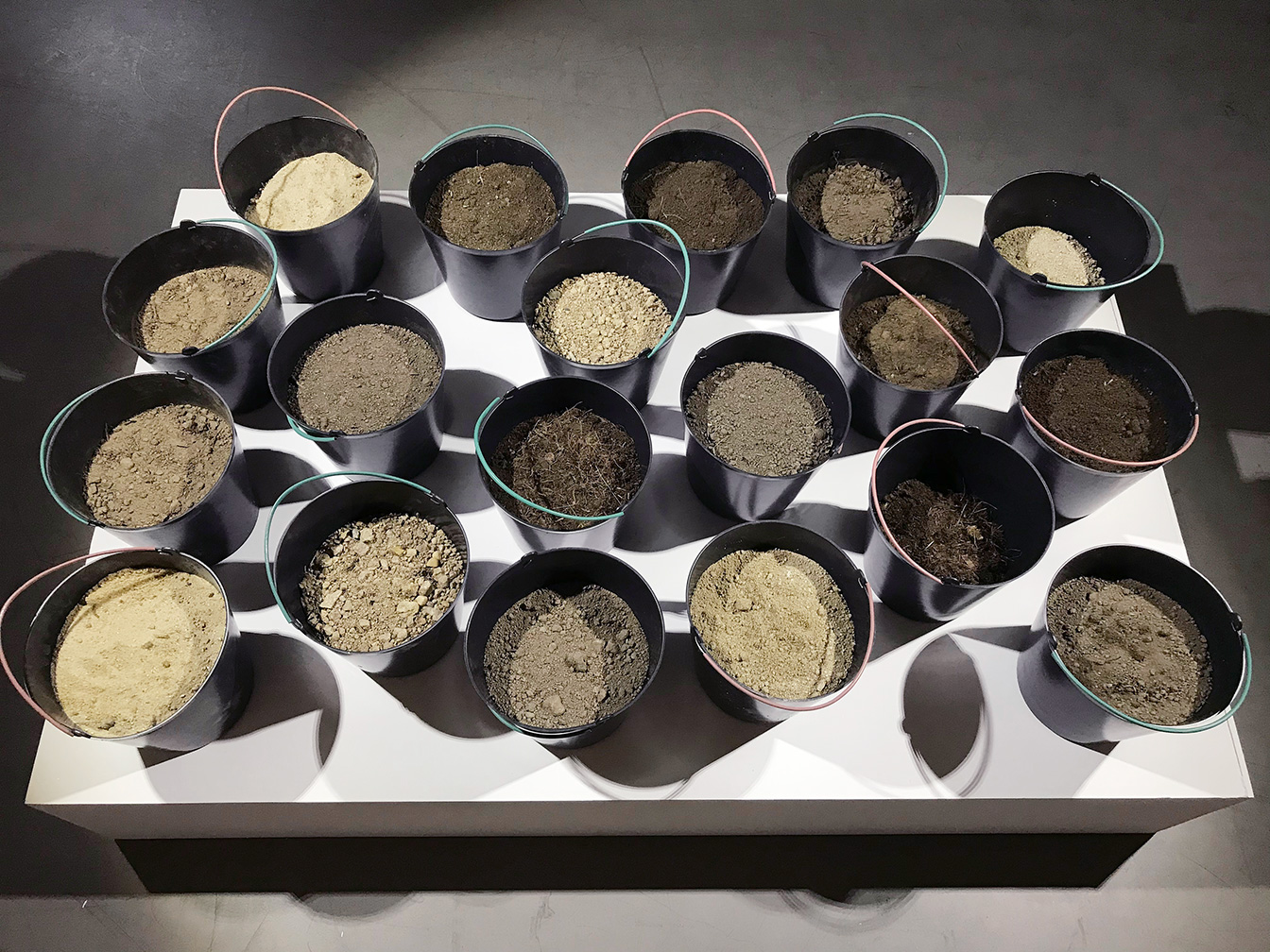
left: Tubes (detail), installation (dimension variable)
right: Our soil came to remind you, installation (dimension variable), buckets, soil
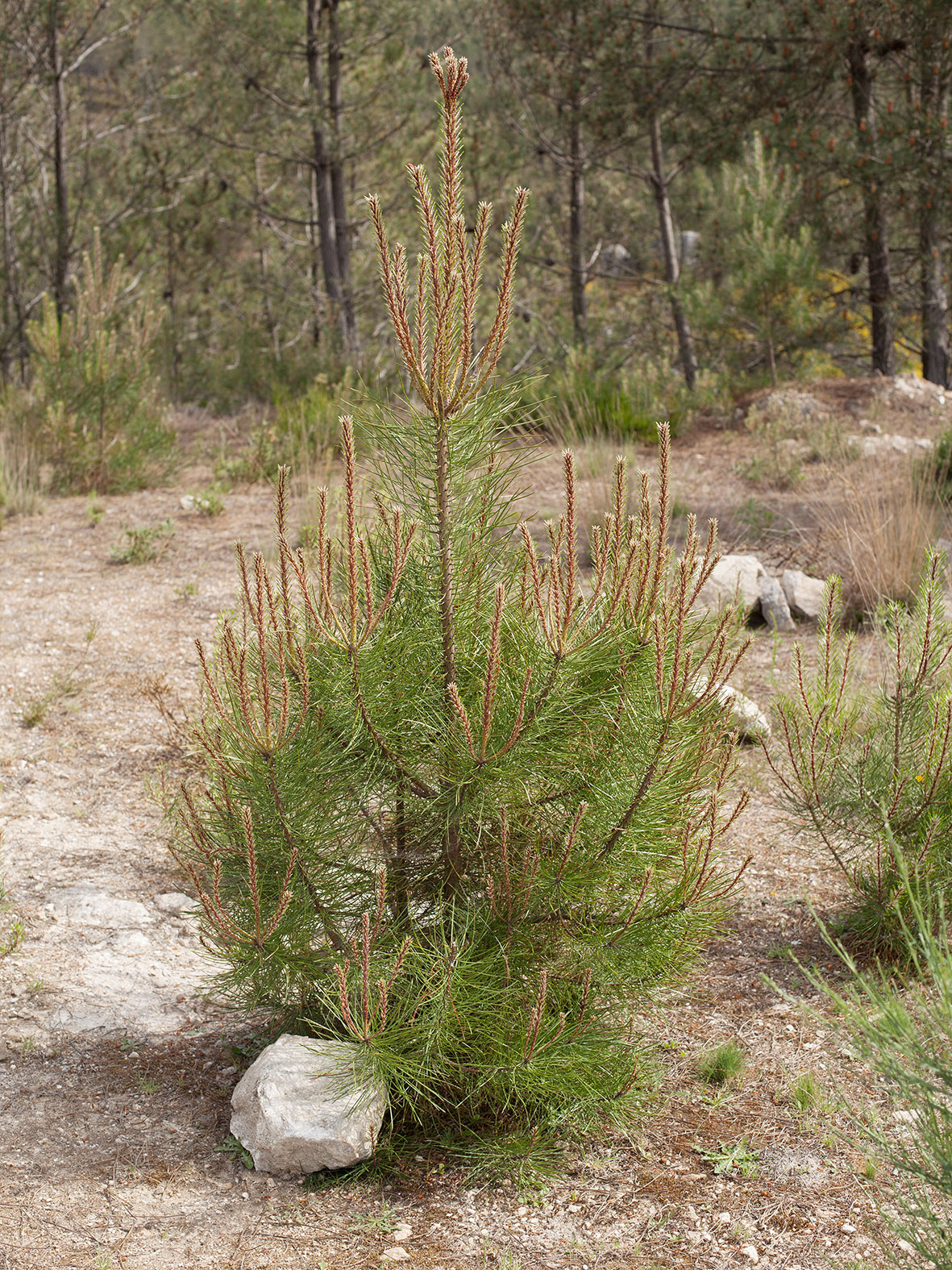
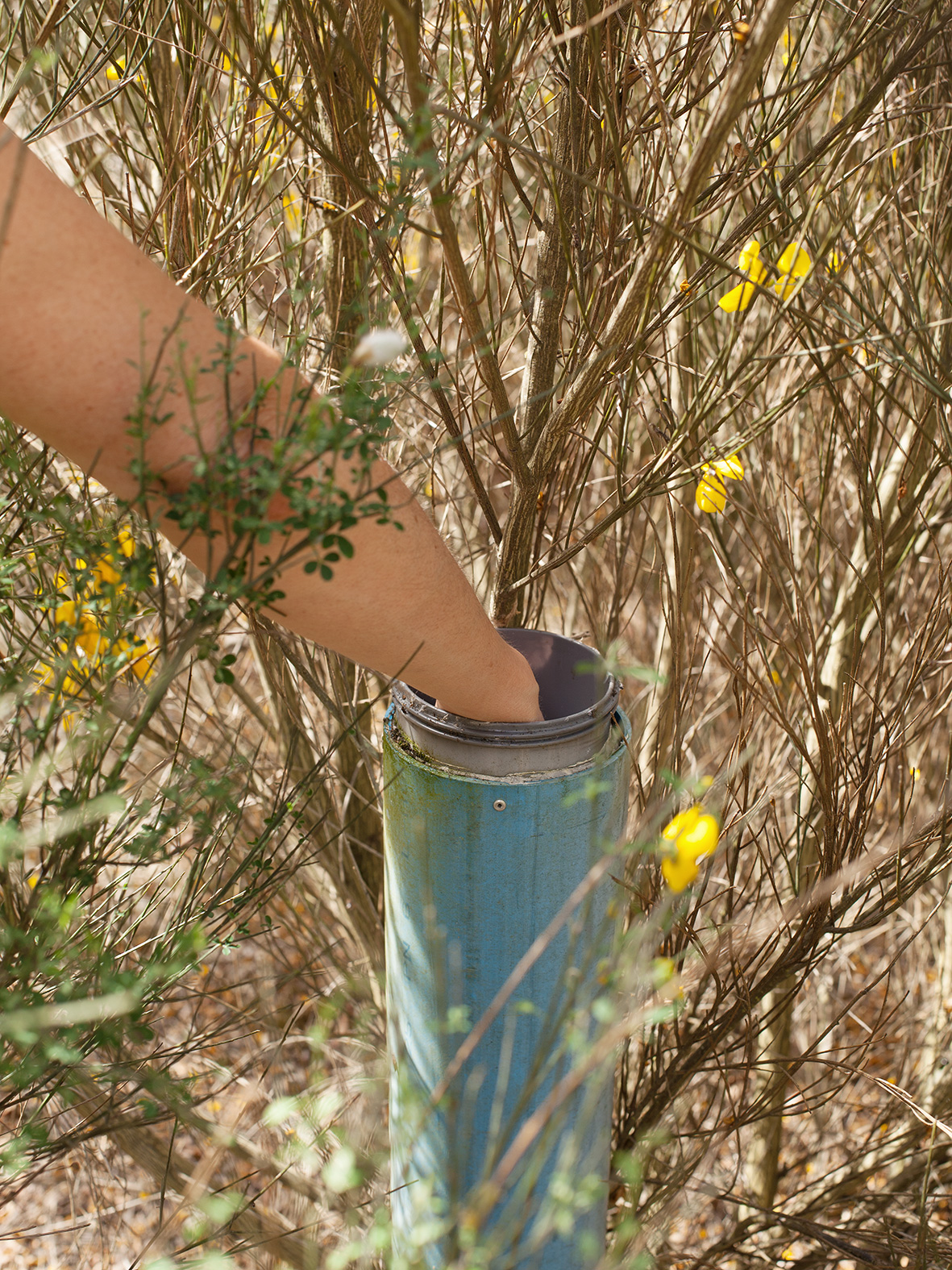


4 photographs à 30/40 cm, Hahnemühle Baryta
Info:
To face the climate crisis, the European Commission has developed plans for a “Green Transition”. Especially for the electric car industry the very light, silvery-white alkali metal lithium, used for the stabilization and rechargeability of batteries, is an essential component. Until recently lithium has been imported to Europe from Australia, Chile, China and Argentina – these countries produce over 90 % of the world’s supply. Now Europe aims to provide the highly valuable mineral to reduce its dependency on strategic commodities. Portugal claims to be one of the countries with the biggest reserves of lithium in Europe.
The project focuses on the hunt for and fight against the so called white gold, lithium. We have met locals from the Serra d’Arga and Covas do Barroso region, who initiated resistance movements against the lithium mining on their lands in 2018. The protest groups demand not only more information and transparency from the authorities but to stop the plans completely. Where the open-cast mining for lithium is planned, communities have lived and worked for many generations, mainly in the agricultural sector.
The impacts on the environmental, socio-economical and health level would be immense: loss of land and income, contamination of the groundwater, air and noise pollution, loss of biodiversity, loss of cultural heritage – to only name a few – on a land that already is highly affected by forest fires, droughts and desertification. To the government’s and investors’ surprise, the resistance against the mines has received nationwide and international attention, further prospection of the land has been stopped, and access to common and public property has been prohibited – for now.
The installation “Our soil came to remind you” is an attempt to show forms of resistance and protest, with the means of collective power, and connection and care about land.
To face the climate crisis, the European Commission has developed plans for a “Green Transition”. Especially for the electric car industry the very light, silvery-white alkali metal lithium, used for the stabilization and rechargeability of batteries, is an essential component. Until recently lithium has been imported to Europe from Australia, Chile, China and Argentina – these countries produce over 90 % of the world’s supply. Now Europe aims to provide the highly valuable mineral to reduce its dependency on strategic commodities. Portugal claims to be one of the countries with the biggest reserves of lithium in Europe.
The project focuses on the hunt for and fight against the so called white gold, lithium. We have met locals from the Serra d’Arga and Covas do Barroso region, who initiated resistance movements against the lithium mining on their lands in 2018. The protest groups demand not only more information and transparency from the authorities but to stop the plans completely. Where the open-cast mining for lithium is planned, communities have lived and worked for many generations, mainly in the agricultural sector.
The impacts on the environmental, socio-economical and health level would be immense: loss of land and income, contamination of the groundwater, air and noise pollution, loss of biodiversity, loss of cultural heritage – to only name a few – on a land that already is highly affected by forest fires, droughts and desertification. To the government’s and investors’ surprise, the resistance against the mines has received nationwide and international attention, further prospection of the land has been stopped, and access to common and public property has been prohibited – for now.
The installation “Our soil came to remind you” is an attempt to show forms of resistance and protest, with the means of collective power, and connection and care about land.